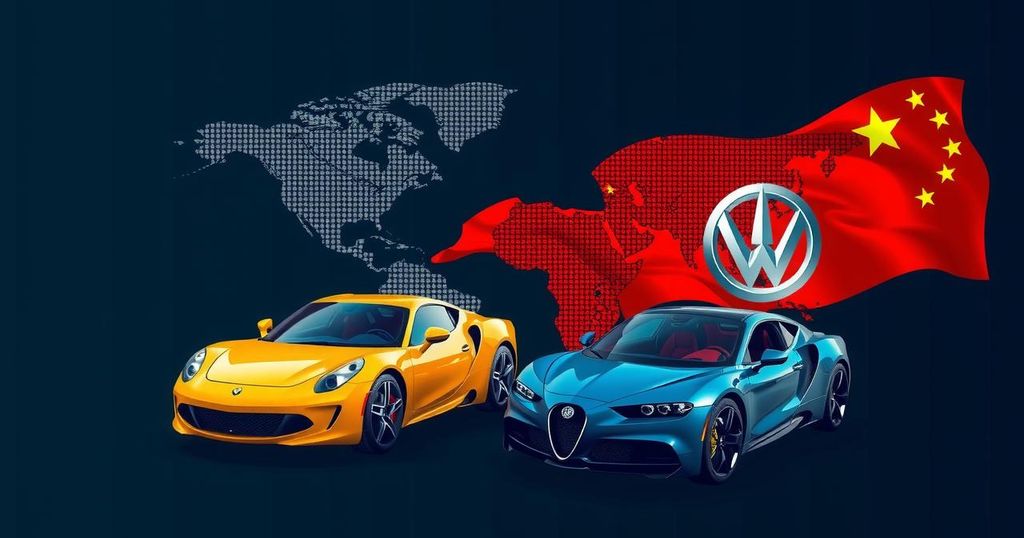Foreign automakers are struggling in China’s electric vehicle market dominated by local companies like BYD and Geely. Analysts emphasize the need for partnerships with Chinese firms if they wish to retain market share. Declining revenues for brands like GM and Volkswagen underline urgency. Joint ventures focused on advanced automotive technologies are essential for competitiveness.
The global automotive industry is at a critical juncture, particularly in China’s rapidly evolving electric vehicle market. Analysts assert that traditional foreign automakers, including notable names like General Motors, Volkswagen, and Nissan, are facing significant challenges as the market dynamics shift towards new energy vehicles (NEVs). This trend has led to an increasing market share for domestic companies, notably BYD and Geely, which now dominate the sector. Foreign brands are now compelled to forge stronger partnerships with local enterprises if they wish to preserve their market position.
With declining revenues in China, these automakers must accelerate their efforts in introducing competitive clean energy vehicles or risk being relegated to niche players in the market. Industry experts, like Tu Le of Sino Auto Insights, caution that time is running short, indicating that collaboration with local firms may be their only feasible option for regaining market share. However, there are doubts regarding the effectiveness of such partnerships, with comments from Weng Yajun from JunHe Law highlighting the fierce competition within the domestic arena.
Moreover, examples abound where foreign companies, such as Volkswagen and Toyota, have initiated joint ventures with Chinese firms to develop advanced technologies, particularly in driver-assist systems and electric vehicle production. These partnerships exemplify the necessity for foreign automakers to align themselves with local tech-savvy firms to create vehicles that can compete against rapidly advancing Chinese manufacturers.
As the situation evolves, it is evident that the competitive landscape will necessitate innovative strategies and collaborative Synergies between foreign and domestic manufacturers. Without such adaptations, many foreign brands may find their foothold in China continually diminishing, facing ever-stiffer competition from indigenous companies who are keenly focused on both domestic and international expansion.
The global automotive landscape has dramatically shifted, particularly influenced by the rise of electric vehicles, especially in China, which stands as the largest car market globally. Dominated previously by foreign manufacturers, the market has witnessed a swift transition with domestic brands emerging as dominant players. The regulatory environment has also evolved, allowing greater foreign ownership, which now compels traditional automakers to reevaluate their strategies. Analysts urge foreign automakers to strengthen ties with local companies to navigate these changes effectively and sustain market share.
In conclusion, traditional foreign automakers in China are confronted with the urgent need to adapt to the burgeoning electric vehicle market. Partnerships with local companies appear to be not just beneficial but essential for survival amidst fierce competition from domestic brands that are rapidly advancing in technology and market strategy. Should these foreign firms fail to act decisively and collaboratively, they risk significant losses in one of the world’s most important automotive markets.
Original Source: www.cnbc.com

Leave a Reply